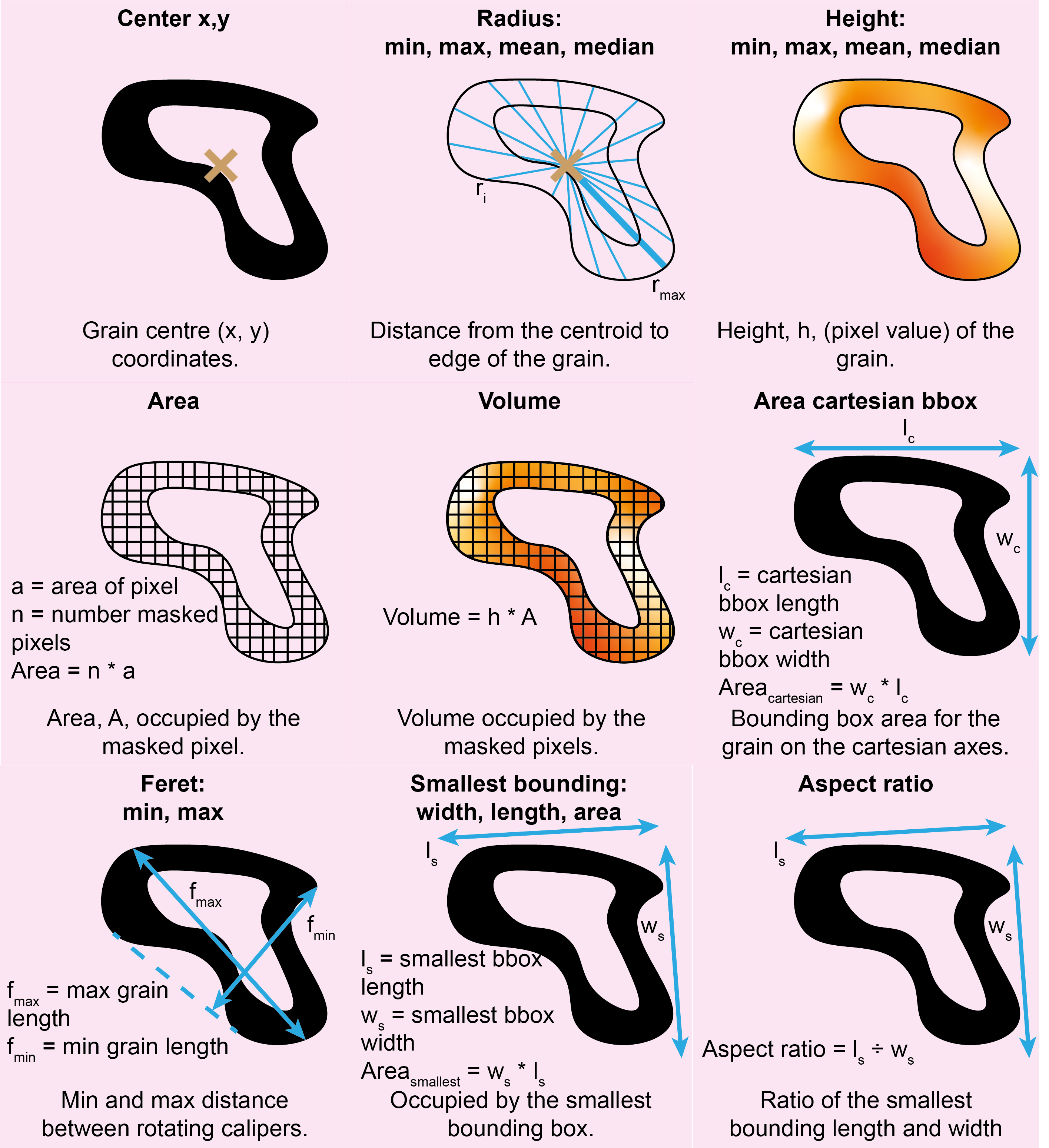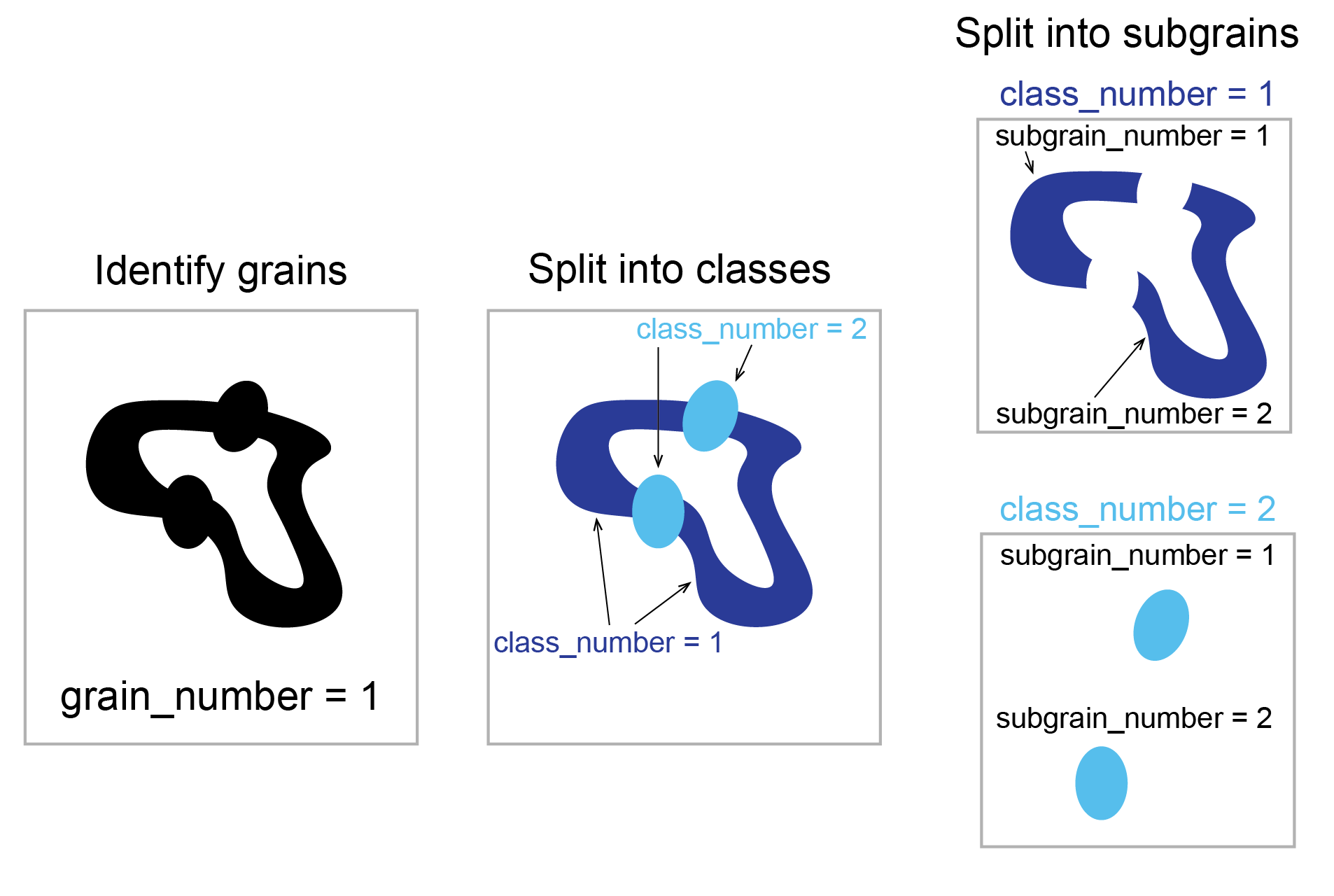Grainstats#
At a Glance - Measures Objects#
TopoStats automatically measures the grains (objects of interest) found in the grain finding section, in your
AFM images, and outputs them into the grain_statistics.csv file.
The metrics are briefly summarised in the table below:
| Column Name | Description | Data Type |
|---|---|---|
center_x/y |
The center of the grain. | float |
radius_min/max/mean/median |
The distance from the center to each pixel on the perimeter. | float |
height_min/max/mean/median |
The pixel values underlying the grain mask. | float |
area |
The area of the pixel-wise grain mask. | float |
volume |
Volume of the pixel-wise grain mask. | float |
area_cartesian_bbox |
The area of a box bounding the grain along cardinal directions. | float |
smallest_bounding_width/length |
The shortest bounding box length and perpendicular width of the grain in non-cardinal directions. | float |
smallest_bounding_area |
The area of the smallest possible box bounding the grain. | float |
aspect_ratio |
Ratio of the smallest bounding width to smallest bounding length. | float |
max/min_feret |
The largest and shortest distance of the calipers rotating the grain between calipers. See feret diameter. | float |

The grain_statistics.csv file#
The grain_statistics.csv file lists metrics for each unique combination of grain_number, class_number,
and subgrain_number, described below. Note that class_number will always be constant if standard grain finding
or a binary U-Net model is used for segmentation, but more classes will be included if
multi-class segmentation approaches are used. You can define custom class names within the grainstats section
of the config file to replace numeric values in the class_number column with meaningful labels.
This can be particularly useful for downstream analysis of extracted metrics.
| Column Name | Description |
|---|---|
grain_number |
Index of the original grain identified through standard grain finding. |
class_number |
Class assigned during multi-class segmentation. |
subgrain_number |
Index of a sub-region (subgrain) within a grain for a specific class. If multiple regions of the same class are found in one grain, they are numbered sequentially. |
A visual example of the labelling procedure is provided below and is
described in greater depth within grain_finding documentation.
